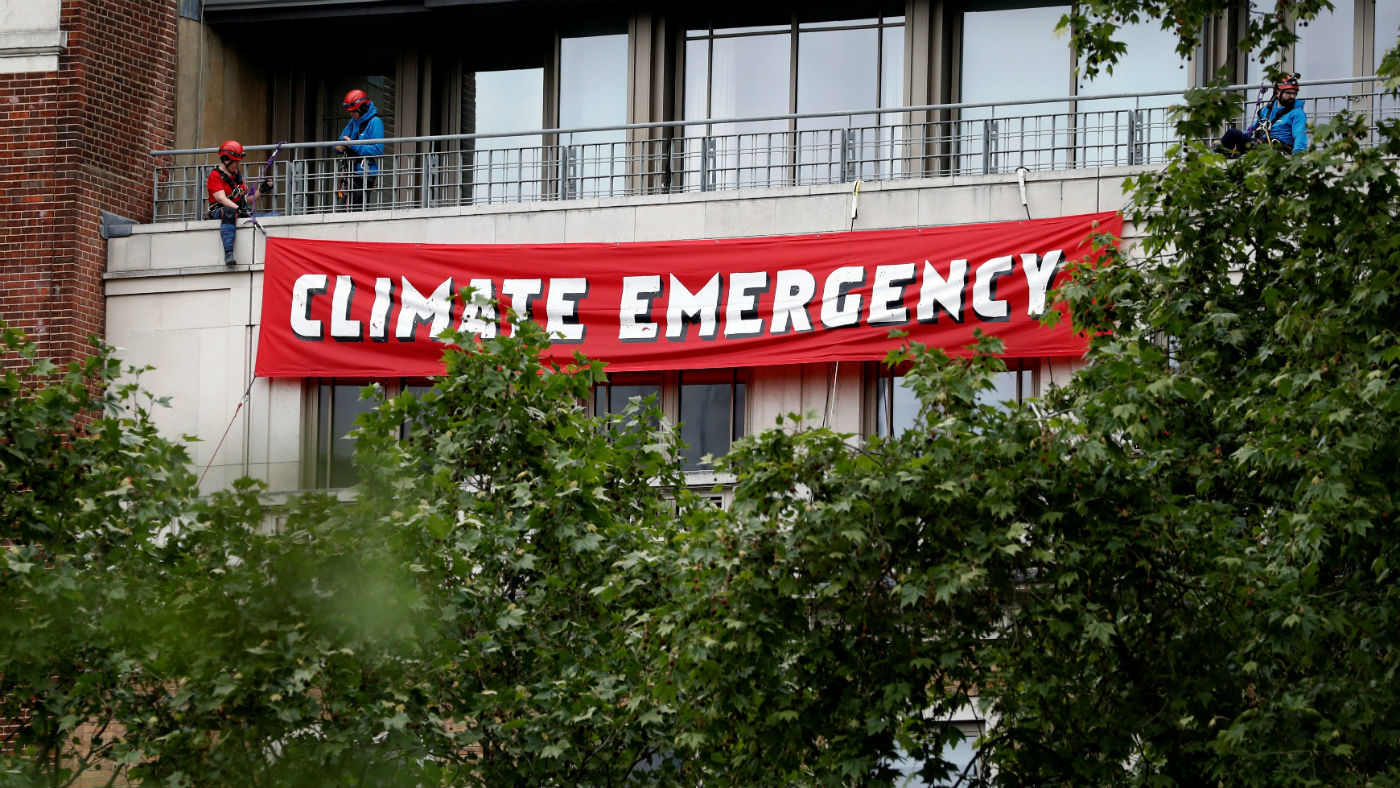Is BP shareholder vote a turning point for climate change?
Oil giant told to set a business strategy consistent with the Paris Agreement, but activists say it doesn’t go far enough

A free daily email with the biggest news stories of the day – and the best features from TheWeek.com
You are now subscribed
Your newsletter sign-up was successful
BP shareholders have overwhelmingly voted for a climate change resolution at the oil giant’s AGM in Aberdeen.
The resolution, which was proposed by a group of 300 investors called Climate Action 100+ which holds over $33 trillion in assets under management, passed with 99% support at the meeting, which took place amid protests from environmental activists.
The vote means that company must set out a business strategy consistent with the goals of the Paris Agreement to keep global warming to well below 2C.
The Week
Escape your echo chamber. Get the facts behind the news, plus analysis from multiple perspectives.

Sign up for The Week's Free Newsletters
From our morning news briefing to a weekly Good News Newsletter, get the best of The Week delivered directly to your inbox.
From our morning news briefing to a weekly Good News Newsletter, get the best of The Week delivered directly to your inbox.
The shareholders also requested that the oil giant to disclose how it evaluates new oil and gas investments in light of climate change, its targets for cutting emissions, and how it links executive pay to meeting those emissions goals.
The Fast Company have described the vote as “a meaningful moment - the 58 investors that filed the resolution own nearly 10% of the company, and represent the largest group so far to support this type of resolution”.
Bloomberg says the mandate is “a clear signal for both the company and the industry to come up with stronger green strategies as they’re put under increasing pressure by activists and investors to cut emissions and play a bigger part in the energy transition”.
Writing in the Financial Times, BP chairman Helge Lund said “some might ask if that is at odds with the interests of the majority of our shareholders”.
A free daily email with the biggest news stories of the day – and the best features from TheWeek.com
“On the contrary. We recognise that the world is on an unsustainable path. We believe our strategy is consistent with Paris. And we welcome steps, such as this resolution, that are supportive of a faster transition to a low carbon energy system.”
However, activists say the demands on BP do not go far enough, particularly in terms of recognising the emissions resulting from use of its product.
CNN reports that “executives advised investors to vote against a more radical proposition by a group called Follow This, led by Dutch shareholders who invest in oil and gas companies with the goal of changing them.
It wanted BP to commit to reducing all emissions, including those generated by BP's customers, but this resolution was backed by just 8% of investors.
“Shell is the only major energy company that has committed to cutting emissions generated by both its activities and the products it sells,” says CNN. It said in December it would link executive pay to these goals.
Bloomberg reports that BP CEO Bob Dudley is “vehemently opposed to including customer emissions in those calculations because he says the company can’t control other peoples’ choices”.
Environmental protesters picketed the AGM while some inside the meeting started shouting, “this is a crime scene,” before being thrown out, reports Fast Company.
It follows similar scenes outside BP’s head office in London on Monday, when climate activists inside five large containers and blocked the entrances to the building.
“Greenpeace protesters used cranes to transport the heavy boxes into place at St James's Square in the early hours of the morning. Other campaigners abseiled down the side of the building to block windows and display banners,” reports the BBC.
The aim is to keep BP's headquarters closed “for at least the whole of this AGM week”, Greenpeace said.